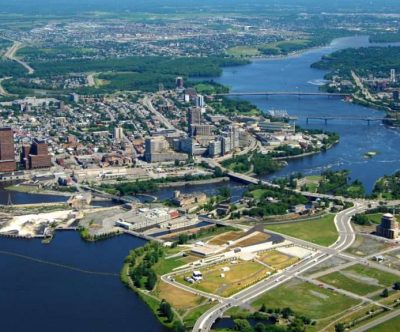May 28 and 29 2025
Université du Québec en Outaouais (Gatineau)
283 boul. Alexandre-Taché, Gatineau
Grande salle de l’UQO + Espace Robert Renaud
This event is organized by Mario Gauthier, Professor, Department of Social Sciences, Université du Québec en Outaouais, Guy Chiasson, Professor, Department of Social Sciences, Université du Québec en Outaouais, Anne Mévellec, Professor, School of Political Studies, University of Ottawa, in collaboration with the Villes Régions Monde network.
This event is organized as part of research funded by the Social Sciences and Humanities Research Council of Canada.
It is open to everyone.
Please confirm your attendance by filling in the form
Registration deadline: Sunday, May 18 2025
Full program and speakers’ notes
Event presentation
This event, part of a research project funded by the Social Sciences and Humanities Research Council of Canada (SSHRC), focuses on metropolitan governance in relation to “collaborative” spatial planning activities in Canada’s major metropolises: Montreal, Ottawa-Gatineau, Toronto and Vancouver. For several decades, the question of city government and governance at the metropolitan level has been on the agenda of academics, politicians and land-use and urban planning professionals alike. Here, the notion of governance refers to activities aimed at governing by producing collective action to solve complex urban problems through effective public policies and other activities aimed at guiding the development of cities and metropolises. In this respect, a number of academic studies have highlighted situations of ungovernability, or relative governability, pointing in particular to decades of disappointing experiments or situations of failure or semi-success in metropolitan governance. These studies emphasize the persistence of a series of obstacles to the implementation of effective metropolitan governance: states that are not very favorable to metropolitan governance, local governments that are still reluctant, conflicting relations between central cities and local municipalities, and local democracy mechanisms that are confined to local territories to the detriment of the metropolitan scale. On the other hand, these studies insist on the importance of building a metropolitan identity and asserting territorial leadership to turn metropolises into genuine political territories and meet the major challenges of metropolization.
Objectives of the day
The objectives of this event are to provide answers to the following questions:

- What conclusions can be drawn from the many experiments in governing Canadian metropolises and planning land use and development on a metropolitan scale? Are they successful, semi-successful or failures?
- What lessons can be learned from institutional reforms in metropolitan governance and collaborative spatial planning?
- What can we conclude from experiences that do not explicitly aim to build a new institution, but are based on exchanges, dialogue and collaboration between players, and on other governance mechanisms on this scale?
- What are the main success factors and obstacles to implementing metropolitan institutions or institutional arrangements for collaborative spatial planning?
- Which issues or sectors of activity – socio-territorial inequalities; the environment, sustainable development and the fight against climate change; transportation and sustainable mobility – lend themselves best to metropolitan governance and collaborative spatial planning?
- What roles should metropolitan leaders, mayors of central cities and other political leaders play in asserting and building metropolitan power?
- What are the most significant metropolitan-scale collaborative spatial planning experiments in Canada’s major metropolises?
Opening lecture: Metropolitan governance and collaborative spatial planning in Europe : Acting in a regime of ungovernability? Between organizational tinkering and institutional reformatting*
Jean-Marc Offner, Scientific Director of the 6T research office and President of the Urban School at Sciences Po Paris
Wednesday, May 28 2025 (17:00)
Summary:
Metropolitan institutions with contested boundaries, and never democratic enough. Urban planning struggles to address the unprecedented challenges posed by the interplay of scales, the governance of living systems, and risk management. Existing spatial frameworks remain ill-adapted to the complex configuration of urban regions in an era of increased mobility. Identities are being eroded by the rise of localism, while political leaderships face a growing crisis of legitimacy. In this context, what coordination mechanisms can be mobilized to restore institutional capacity for action? If metropolization entails the networking of territories and if ecological transition is fundamentally about flows and cycles, then metropolitan governance must focus on regulating interdependencies and fostering relational approaches.
Welcoming address by Murielle Laberge, rectrice de l’Université du Québec en Outaouais
* The conference will be held in French, without translation
Program for the day
Event moderator: Éric Champagne, École d’études politiques, Université d’Ottawa
Thursday, May 29 2025
A translation service will be available for the day
8:30
Welcome (coffee & croissants)
8:45
Welcoming address
Mario Gauthier, professeur au département des sciences sociales de l’Université du Québec en Outaouais
Sandra Breux, director of the Villes Régions Monde research network
9:00 à 10:30
Canada’s National Capital Region (Ottawa-Gatineau)
Mario Gauthier (UQO), Guy Chiasson (UQO) et Anne Mévellec (UOttawa)
L’improbable, mais non impossible, gouvernance métropolitaine : la
planification des liens interprovinciaux et de la mobilité durable dans la
région métropolitaine d’Ottawa-Gatineau
Summary
Dans le système métropolitain canadien, la région d’Ottawa-Gatineau revêt un caractère singulier et une situation inédite. Il s’agit en effet à la fois de la Capitale nationale du Canada et d’une région frontalière interprovinciale qui, en dépit de l’existence d’une société d’État fédérale – la Commission de la capitale nationale du Canada – ne dispose pas d’une institution de gouvernance métropolitaine. Toutefois, malgré l’absence d’une autorité formelle, la région d’Ottawa-Gatineau a développé des arrangements et des dispositifs de gouvernance à l’échelle métropolitaine favorisant la coopération et la collaboration entre les instances locales, provinciales et fédérales, notamment en matière de planification territoriale et de transports collectifs. Prenant appui sur l’analyse du cas de la planification des liaisons interprovinciales et de la mobilité durable dans cette région transfrontalière, la communication mettra en évidence un certain nombre d’épisodes collaboratifs favorisant la construction politique d’un échelon métropolitain. La communication permettra notamment d’identifier les obstacles permanents à la mise en œuvre d’une gouvernance métropolitaine et le succès relatif de ces épisodes collaboratifs.
Alain Miguelez, Vice-président et planificateur en chef, Commission de la capitale nationale – CCN
Gouverner entre deux provinces : la complexité administrative de la région de la capitale nationale
Summary
Parmi les grandes métropoles canadiennes, la région de la capitale nationale est unique en ce qu’elle enjambe deux provinces et y est superposée un organisme fédéral de planification. Cette complexité administrative donne parfois du fil à retordre aux intervenants multiples de la région, mais a aussi donné lieu à des formules de collaboration tout-à-fait uniques.
Jean-François Mahé, Directeur, Bureau de projet TramGO
TramGO : un projet de mobilité durable à l’échelle de la capitale
Summary
Le projet de tramway Gatineau-Ottawa (TramGO) est sans contredit l’un des projets de transport structurant les plus complexes au pays. La présentation de ce projet d’envergure métropolitaine abordera les principaux défis rencontrés – notamment ceux liés à la planification territoriale et à la mobilité durable – dans un contexte d’échanges interprovinciaux. Elle traitera également de la structure de gouvernance unique regroupant les partenaires du milieu (municipal, provincial et fédéral), de l’échéancier des consultations publiques à venir ainsi que des prochaines étapes du projet.
9:45 – Exchanges and discussion with participants
10:15 to 10:30
Coffee break
10:30 à 11:45
The Greater Montreal Area
10:30 – The Greater Montreal Area
Gérard Beaudet, professeur à l’École d’urbanisme et d’architecture du paysage (Université de Montréal)
La Communauté métropolitaine de Montréal et le gouvernement d’un patchwork
Summary
La Communauté métropolitaine de Montréal est un patchwork de municipalités locales et régionales en concurrence plus ou moins ouvertes les unes avec les autres. Une quinzaine d’années après l’adoption du premier plan métropolitain, une question se pose : une planification spatiale collaborative adaptée aux grands défis de l’heure y est-elle possible?
Marie-Michèle Cauchy, Directrice, Milieux de vie durables et prospères, Communauté métropolitaine de Montréal
Planification territoriale à l’échelle métropolitaine : le rôle central de la CMM
Summary
Créée en 2001, la CMM regroupe 82 municipalités et rassemble près de la moitié de la population du Québec. L’entrée en vigueur de son premier Plan métropolitain d’aménagement et de développement (PMAD) en 2012 aura permis d’assurer la cohérence de la planification du territoire à l’échelle métropolitaine. Il est le fruit d’un important exercice de participation et de concertation qui se perpétue à travers l’Agora métropolitaine. La CMM travaille de concert avec ses partenaires à la révision du PMAD qui offrira une vision renouvelée du développement métropolitain dans un contexte d’urgence climatique et de crise du logement.
Lucie Careau, Service de l’urbanisme et de la mobilité, Division de la planification urbaine, Ville de Montréal
Gouvernance et planification intégrée : les enjeux du Plan d’urbanisme et de mobilité de Montréal
Summary
L’exercice du Plan d’urbanisme et de mobilité (PUM) de la Ville de Montréal s’imbrique agilement à la complexité de la gouvernance métropolitaine. Les multiples approches de planification des différentes échelles représentent à la fois des défis et des opportunités de concertation. Aborder ces défis pour optimiser les mécanismes de consultation et de planification est cruciale.
11:15 – Exchanges and discussion with participants
11:45 to 1:15
Lunch on site
1:15 to 2:30
The Greater Toronto Area (GTA)
Pierre Filion, School of planning (Université de Waterloo)
Les hauts et les bas historiques de l’aménagement de Toronto à l’échelle métropolitaine
Summay
La communication se concentre sur quatre périodes qui ont défini l’aménagement à l’échelle métropolitaine à Toronto, de la création de Metro Toronto en 1953 à la période actuelle. Ces périodes sont : 1) Metro Toronto en tant qu’agence métropolitaine d’aménagement; 2) faisant suite à une forte croissance urbaine hors de Metro Toronto, la création au début des années soixante-dix de quatre nouvelles administrations régionales autour de Metro Toronto; 3) en 2006, adoption par le gouvernement provincial du plan de portée régionale, Place à la croissance; 4) la grande région de Toronto au cours des dernières années a fait l’objet d’un nombre croissant de décisions du gouvernement provincial dérogeant des principes énoncés dans Place à la croissance. La communication va identifier les principales interventions urbanistiques de portée métropolitaine au cours des quatre périodes. Ces interventions marquent un va-et-vient entre la coordination et le laissez-faire ainsi qu’entre les grands projets structurants et l’austérité.
Laura Taylor, Associate Professor & MES Planning Coordinator, Faculty of Environmental and Urban Change (York University)
From Vision to Disillusionment: What Happened to the Greater Golden Horseshoe Growth Plan?
Summary
Launched in 2006, the Growth Plan for the Greater Golden Horseshoe was heralded as a transformative approach to managing one of North America’s fastest-growing urban regions centred on the city of Toronto. Designed to curb sprawl, protect valuable agricultural and environmental lands, and promote sustainable, transit-oriented communities, the Plan laid out an ambitious policy framework for growth. Nearly two decades later, however, provincial decisions have effectively dismantled key elements of the Growth Plan and have undermined regional municipal planning. This presentation critically examines the evolution of the Growth Plan, and investigates why the Plan has been characterized by some as a “disappointing experiment.” It also reflects on lessons learned and considers what the experience reveals about the limits and possibilities of regional planning in complex and rapidly urbanizing environments.
13:45 – Exchanges and discussion with participants
14:15 to 14:30
Coffee break
2:30 to 3:45
The Greater Vancouver Regional District
Neil Hrushowy, Director, Community Planning at Planning, Urban Design and Sustainability, City of Vancouver
Planning Vancouver within the Regional Context: Local Vision and Regional Alignment
Summary
Vancouver is in the process of creating its first Official Development Plan, and doing so while balancing clear policy guidance from City Council with new legislative housing imperatives from the Province. This is being done while still meeting Vancouver’s obligations within the regional planning framework, which has made for some complex regulation and by-law writing exercises. Framing these policy and regulative parameters as opportunities, versus barriers to local prerogative, has resulted in new policy directions that are still aligned with Council direction and also reflect Vancouver’s take on how best to meet the intent of the new legislation or regional policy. This has allowed staff to become leaders in creating new policy and regulatory tools, very often on tighter timelines than under previous regulatory regimes, which helps to both advance our planning goals and reshape our policy and regulatory systems to be more efficient and streamlined.
Jonathan Cote, Deputy General Manager, Regional Planning and Housing Development, Metro Vancouver
Metro 2050: Building a Resilient Region
Summary
This presentation unpacks Metro Vancouver’s collaborative governance model, demonstrating how it shapes and adapts to our evolving needs. Explore the region’s unique governance structure and how it fosters cooperation among diverse municipalities. This session will illuminate the practical application of regional planning, emphasizing its adaptive nature. See how this evolving document guides development, addresses challenges, and builds a resilient future for all residents.
3:00 – Exchanges and discussion with participants
3:30 to 3:45
Coffee break
3:45 to 4:15
Richard Shearmur, professor at the School of Urban Planning (McGill) looks back on the day
4:15 to 4:30
Closing words
Information and registration
Registration is mandatory. Please confirm your attendance by completing this form before May 18, 2025.
If you have any questions, please contact Salomé Vallette (salome.vallette@inrs.ca)




